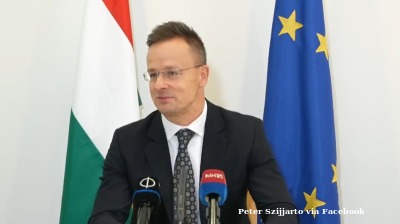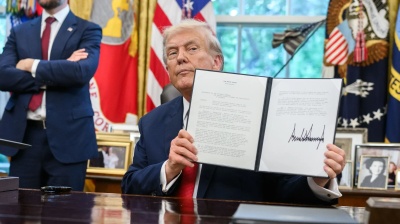Venezuela stands on a knife-edge in the aftermath of the July 28 presidential election unfolds, with opposition claims of victory clashing against incumbent Nicolás Maduro's insistence on maintaining power.
The nation's future hangs in the balance, with street protests escalating and international pressure mounting for transparency in the vote count. At least 11 civilian deaths have been reported since July 29, alongside two fatalities among security forces. Iconoclastic acts are being widely shared on social media, with statues of former president Hugo Chavez being toppled across the country.
Opposition candidate Edmundo González claims a landslide victory, citing tallies from 90% of polling stations that reportedly show him securing more than twice the votes of Maduro. However, the government-controlled National Electoral Council (CNE) has declared Maduro the winner with 51% of the vote.
After reportedly tense negotiations, Celso Amorim, a top aide to Brazilian President Luiz Inácio Lula da Silva, told the Financial Times that Maduro had promised to release detailed voting data "in a short period of time". This pledge, made on July 30, comes as the CNE's website has been down since election day, leaving many to question the validity of the official results.
The international community is divided, with Russia, China, Iran and Cuba congratulating Maduro, while the US, EU, G7 and most Latin American countries – including leftist Colombia and Brazil – demanding the publication of vote tallies.
“We see that the opposition does not want to accept their defeat, although we believe the opposition should do so. They should congratulate the winner of these elections,” Kremlin spokesman Dmitry Peskov stated, disclosing that Maduro’s visit to Moscow is “in the pipeline.”
Meanwhile, the Organisation of American States (OAS), from which Venezuela withdrew in 2017, has refused to recognise Maduro's victory, citing a "coordinated strategy to undermine the electoral integrity.” In a similar vein, the Carter Center – the only independent organisation officially invited by Caracas to observe the vote – said that “the presidential election did not meet international standards of electoral integrity and cannot be considered democratic.”
As tension simmers, the military's next moves will be crucial. While opposition leaders María Corina Machado and González called on the armed forces to uphold the true results, Defence Minister Vladimir Padrino has pledged "absolute loyalty" to Maduro. As of July 31, there were no signs the army is breaking away from the regime.
"We are witnessing a coup d'état plotted by right-wing extremists supported by imperial and allied sectors," Padrino said in a televised speech.
Echoing his words, Maduro claimed that “The July 28 elections were the definitive battle against fascism, hatred, and intolerance from those who want to carry out a coup, provoke a civil war, and stoke divisions among Venezuelans.”
The crisis has sparked diplomatic tensions and further isolated Venezuela on the regional stage, with Caracas expelling diplomats from seven Latin American nations and cutting air links with Panama and the Dominican Republic.
As protests continue, the capital remains tense, despite appeals for peace from opposition leaders. Witnesses report clashes between security forces and demonstrators – even in former Chavista strongholds – as well as attacks on protesters by government-allied motorcycle gangs known as "colectivos".
The opposition hopes these widespread marches could test the allegiances of the country's security forces, although both military and police have largely remained loyal to Maduro in past crises.
Speaking to Reuters, Carmen Beatriz Fernández of Datastrategia suggests there's still "a small chance" the government might agree to negotiations for a transition of power. However, she notes that by withholding vote tallies, the administration "seems to be taking the worst path for themselves and for the country".
In a rare show of unity, Brazilian President Lula and his US counterpart Joe Biden have agreed to withhold judgement until the full vote tallies are released, indicating the global significance of this electoral dispute.
With many of Caracas’ businesses closed and food shortages on the horizon, the oil-rich nation's immediate future remains shrouded in uncertainty. The coming days will be critical in determining whether Maduro could relinquish power peacefully, agree to some form of dialogue or plunge the country further into political and social upheaval.
News
_1761050969.jpg)
Revolut clears final hurdle for Mexico banking debut
Revolut has received final authorisation from Mexico's banking regulator to commence operations, positioning the London-based fintech to launch services within weeks.

Hungary to challenge EU’s ban on Russian gas imports, vows to block REPowerEU
Hungarian Foreign Minister Peter Szijjarto says the European Council’s decision to ban Russian fossil fuel imports by 2027 could jeopardise Hungary’s energy security.

Slovak Foreign Minister Blanár reiterates support for Ukraine’s EU bid
Juraj Blanár says Ukraine is "ready in a way" for accession, but notes objections from some EU member states.

Poland’s Empik prepares Warsaw IPO, reportedly to raise up to €200mn
Book and media retailer Empik is planning to launch an IPO on the Warsaw Stock Exchange in 2026.

.jpg)


